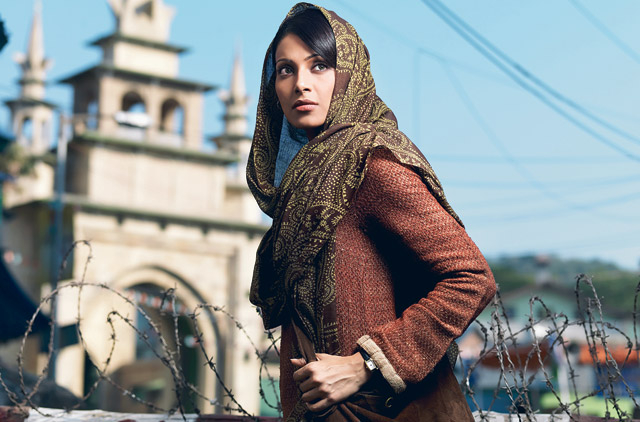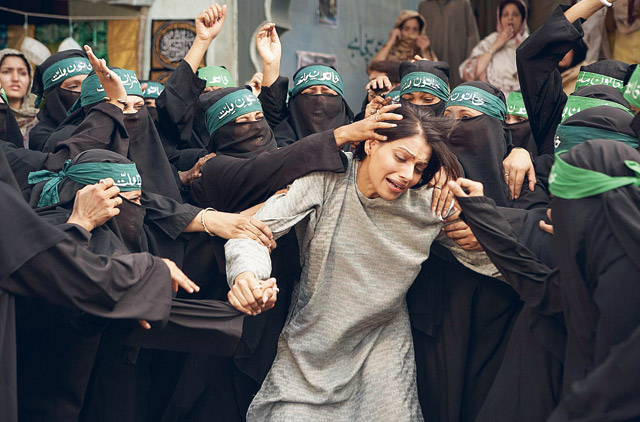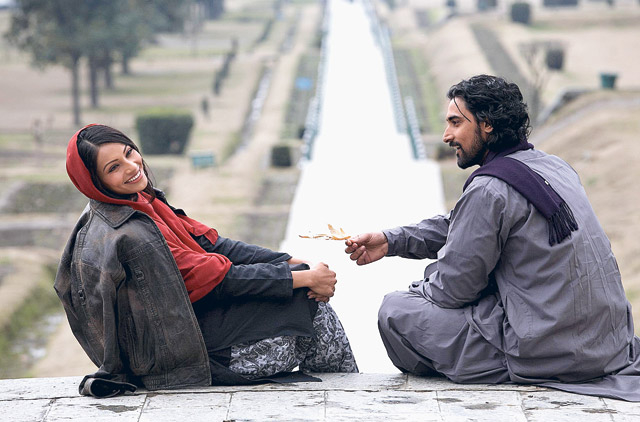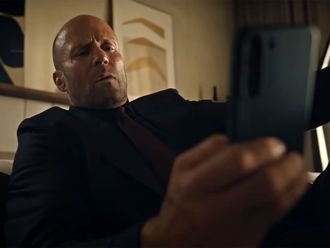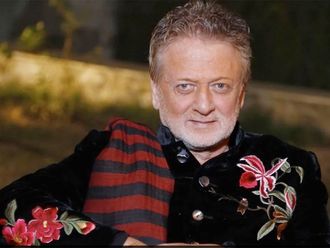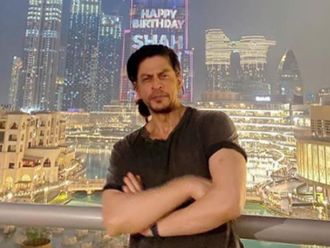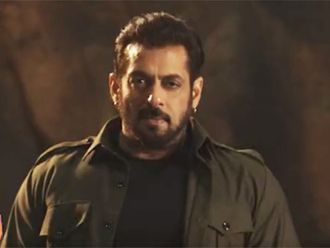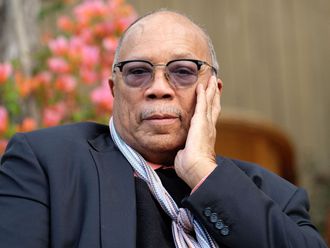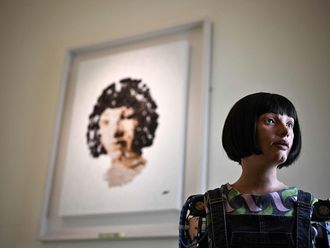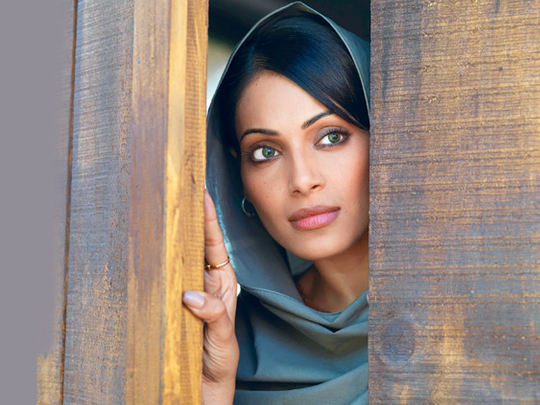
Bollywood siren Bipasha Basu has traded in her designer gowns for guns as she takes on the role of Aziza, a fierce Muslim militant leader, in war-torn Kashmir in Lamhaa, a political thriller. The film hits cinemas in India on Friday, but has not received approval for release in the UAE.
"It was so refreshing. For once in my life I was playing a character who did not take hours to get ready before a shot," Basu tells tabloid!.
The Bollywood go-to girl for racy roles says she was good to face the camera in just under seven minutes. "I didn't have to wear any heavy pancake make-up. All I needed to do was wear a salwar kurta," she adds.
But despite the light banter, there is no ignoring the harsh realities that have plagued the film ever since it was announced. First, there were widely reported incidents of residents in the strife-torn state disrupting the filming, concerned that the movie was portraying them in a bad light. Then, once the promos were out, censor bosses apparently took offence to a line in the film referring to Kashmir as "the most dangerous place on earth".
Basu also found herself caught in the midst of the tension during filming. While she has not confirmed this officially, she is reported to have walked out during filming on location in Kashmir, and fled to New Delhi, fearing for her safety. The team shot for nearly 30 days in Kashmir.
"I remember for the first day of the shoot, we had people who took us hostage, but thankfully I was in a burqa and people didn't recognise me, so I could return to my van safely. At one point, there was one person chanting ‘Allah' and the next second there was more than 50 people chanting... it was all so scary and unsettling," recalls Basu.
Research
But award-winning director Rahul Dholakia, whose credits includes the National Award-winner Parzania, remained unfazed by these protests. "They had locked us up and there were at least 400 people around me," he says.
"At first we didn't know what was happening. But after being taken hostage by protesters for more than four or five hours, I could finally reason with them. This set the tone of things to come for us."
Basu says she relied on her director for support. "He spent more than two years in Kashmir, researching the script. And you need to remember that the heightened security did not allow me to really interact with Kashmiri women. All of it had to be handled with such sensitivity. So what you see on screen is Rahul's vision," says Basu.
Lamhaa is not a docu-drama, she insists. "The idea of Lamhaa is to entertain people and make them aware of a burning issue. The idea is also to let people know that you can't take anything for granted when it comes to Kashmir. One day, it's peaceful and the next day there may be unrest or curfew. We have tried to capture the fights, the battles and the dilemmas with sensitivity," says Basu.
Lamhaa is not the first film to tap into the bloody Kashmir issue — a land claimed by both India and Pakistan. Hrithik Roshan-starrer Mission Kashmir and Mani Ratnam's Roja are some of the films that have touched upon the sensitive subject. But Dholakia is not impressed with Bollywood's brush with Kashmir. "If you were to ask me, I can't think of a single Bollywood film which has dealt with the Kashmir issue fairly. None of these films tell a story from the Kashmiri point of view. All of these films had a one-sided version, we have attempted to cross over to the other side with Lamhaa," says Dholakia.
Romance, a staple of any Bollywood film, is also missing from Lamhaa.
"I don't romance Sanjay [Dutt] or Kunal [Kapoor] in this film. The movie is not about my romance with a particular person. It's more about your romance with a place that you were born in. It's a tale about loyalty to your motherland and the fight to regain a bit of that paradise you knew," says Basu.
"I cannot comment on the fate of the film, but I am incredibly proud of my role in Lamhaa."
Five minutes with Kunal Kapoor
Bipasha Basu may have relied on her director to gain insight into her role, but actor Kunal Kapoor chose a different route. This Rang De Basanti star plays militant-turned-politician Aatif in Lamhaa.
"I read up a lot about the Kashmir issue before setting foot on the sets. I even spoke to a few ex-militants who had given up arms and joined politics. All of that really helped me play my role effectively. This was a very interesting project to film and to shoot," says Kapoor.
The actor, who has been on a sabbatical of sorts and was seen last in a couple of cameos, adds that he was on the hunt for "meaningful" roles.
"It may not have been a productive year in terms of shooting for several projects, but I have made a conscious decision to be associated with projects that excite me as an artist. Lamhaa appealed to me in every sense," says Kapoor.
He adds that he would rather be out of sight than be visible in mediocre projects. "I know visibility is the key in Bollywood, but I would rather be out of people's minds than be on their minds after acting in meaningless roles."


